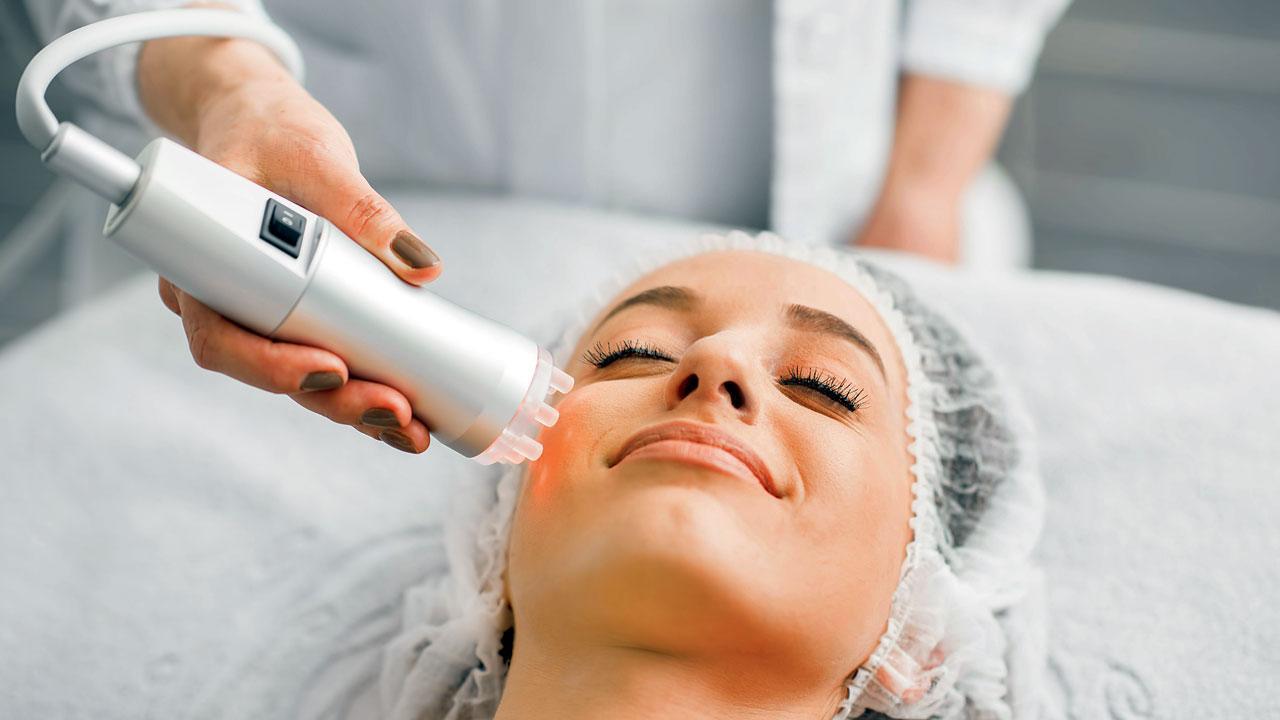Laser de-ageing treatments have caught the fancy of skincare mavens. An expert gives us the lowdown

Representation pic
Close on the heels of a seemingly endless array of oils, creams and serums, laser facials that purport to make your skin younger by stimulating collagen production are the newest and coolest kids on the skincare block. Although relatively pricier than your average bi-monthly facial, these have gained tremendous popularity among skincare mavens, especially on social media. And, as per celebrity dermatologist Dr Niketa Sonavane, who is also the founder of Ambrosia Aesthetics, there is some merit to the hype. “Our skin’s support structure is made up of collagen and elastin. This support structure weakens with age, leading to the formation of wrinkles.
ADVERTISEMENT
How does it work?
Laser rejuvenation treatments use cutting-edge technology to revitalise your skin by stimulating the production of collagen and elastin,” she explains. The term laser is an abbreviation for Light Amplification by Stimulated Emission of Radiation. It is a single-wavelength (one colour of light) source of high-energy light that can be precisely focused to transmit that light onto a very small area, says Dr Sonavane. In cosmetic dermatology, two types of lasers are used — ablative lasers, which vaporise the top layers of damaged skin, and non-ablative lasers, which penetrate deeper into the skin without damaging the top layers. In the latter case, there is no significant patient downtime. And so, laser treatments can reduce the appearance of deep wrinkles, smooth out moderate wrinkles, and eliminate mild wrinkles, depending on the type of laser system used as well as how well your body responds to the treatment. “In a nutshell, lasers use light and heat energy to cause controlled damage to the skin’s surface, which your body responds to by creating new skin to heal the tissue,” she clarifies.
Post-treatment care
After a cosmetic laser session, you may experience some redness and swelling. Itching or stinging is also common for a few days following the procedure. To aid healing, dermatologists recommend applying a ceramide-based moisturiser to the lasered skin and applying cold packs to ease inflammation. “You may also be prescribed an antibiotic medicine to prevent bacterial infections, as well as an antiviral medication if you are prone to cold sores or fever blisters,” adds Dr Sonavane. While it takes anywhere between two and 10 days for the outer layers of your skin to heal, the deeper collagen heals and builds for several months, without any visible abnormalities. During this period, it’s important to use a broad-spectrum sunscreen that filters out both ultraviolet B and ultraviolet A rays. Dr Sonavane recommends choosing sunscreens that are especially formulated for use on the face and have a zinc oxide content of seven per cent or higher as well as an SPF of 30 or higher. Finally, make sure to keep the new skin moisturised.
Know before you go
Laser skin resurfacing treatments come with certain risks, says Dr Sonavane:
>>Burns
>>Scarring or grid marks
>>Changes in pigmentation, including patches of darker or lighter skin
>>Cold sores from herpes can get reactivated
>>Infection caused by bacteria
People with immune system and connective tissue disorders, poor health, keloids, or active infections such as acne are not good candidates for laser skin treatment, she concludes.
 Subscribe today by clicking the link and stay updated with the latest news!" Click here!
Subscribe today by clicking the link and stay updated with the latest news!" Click here!






